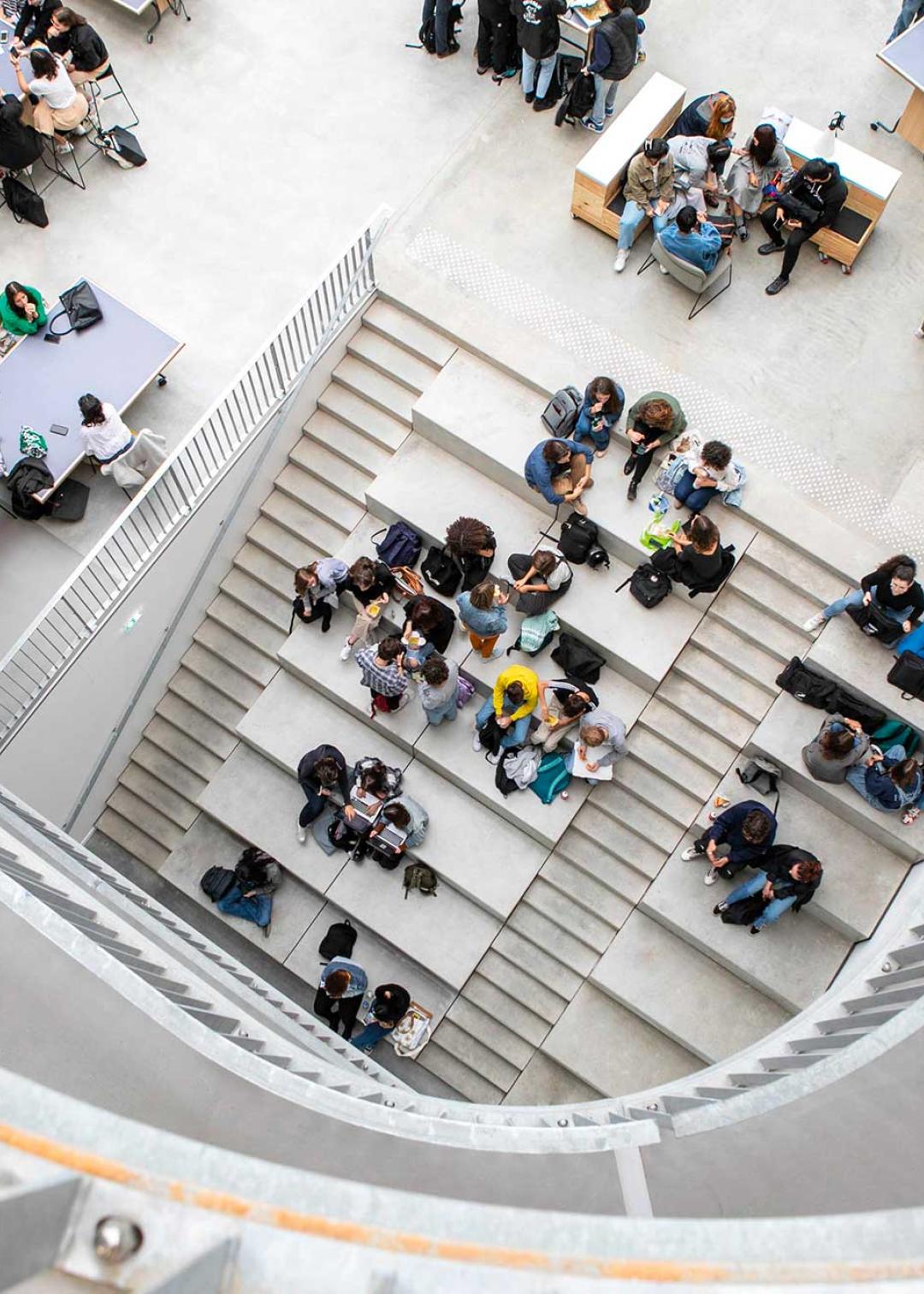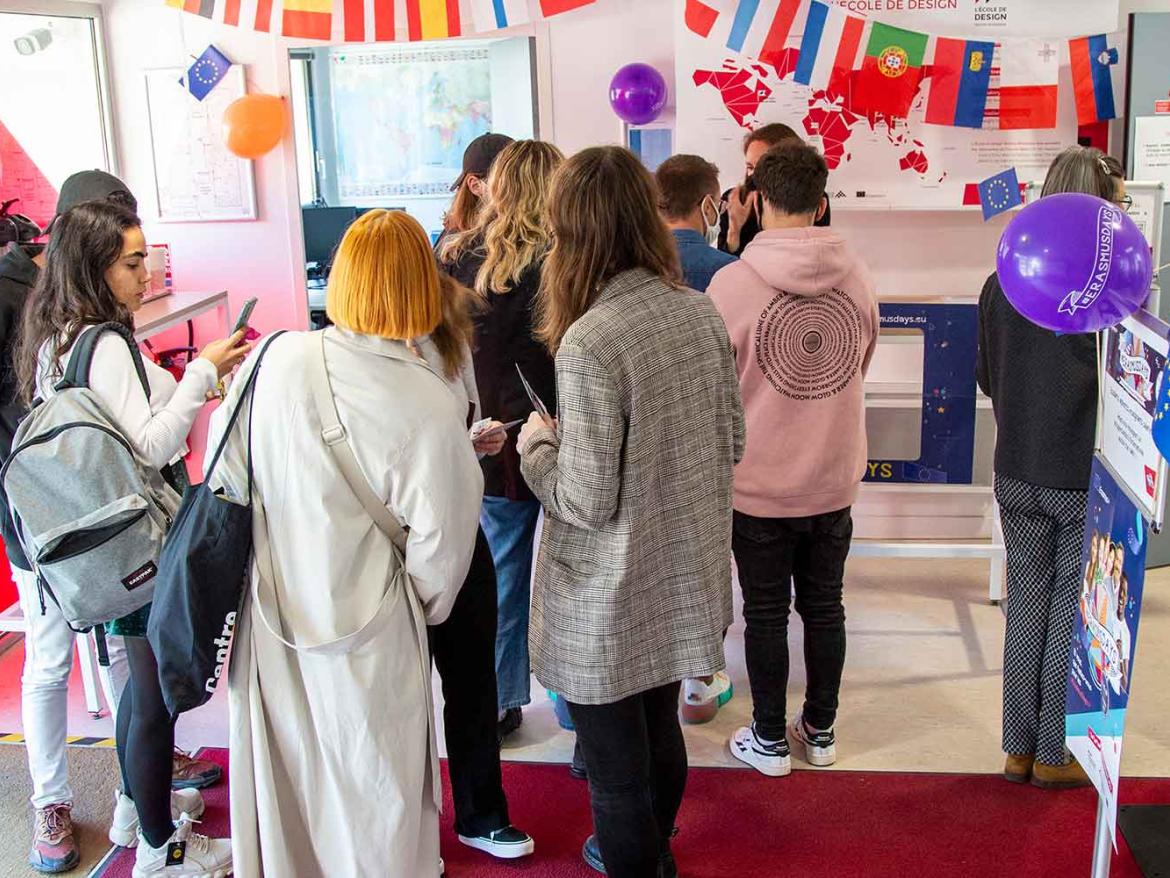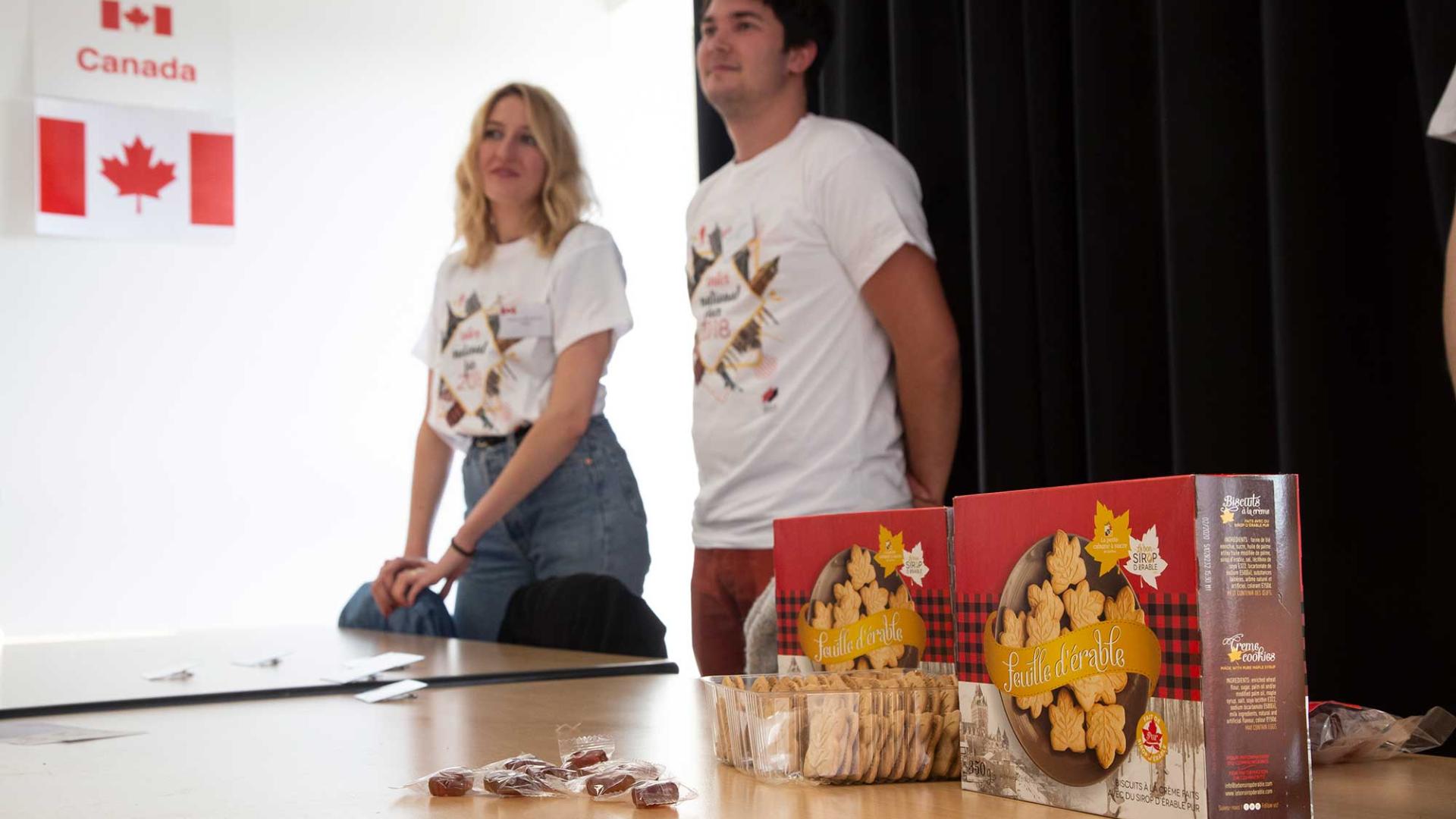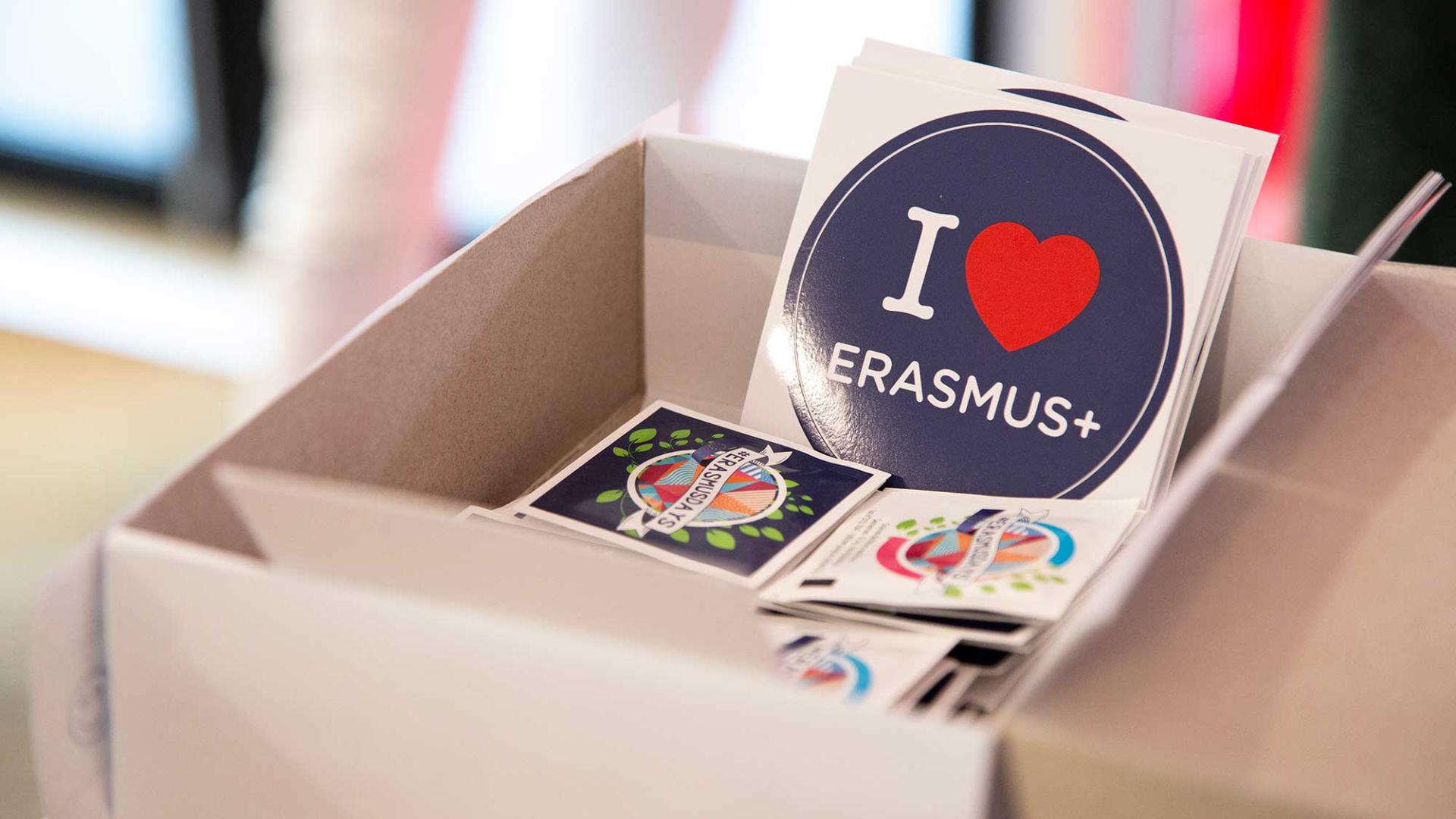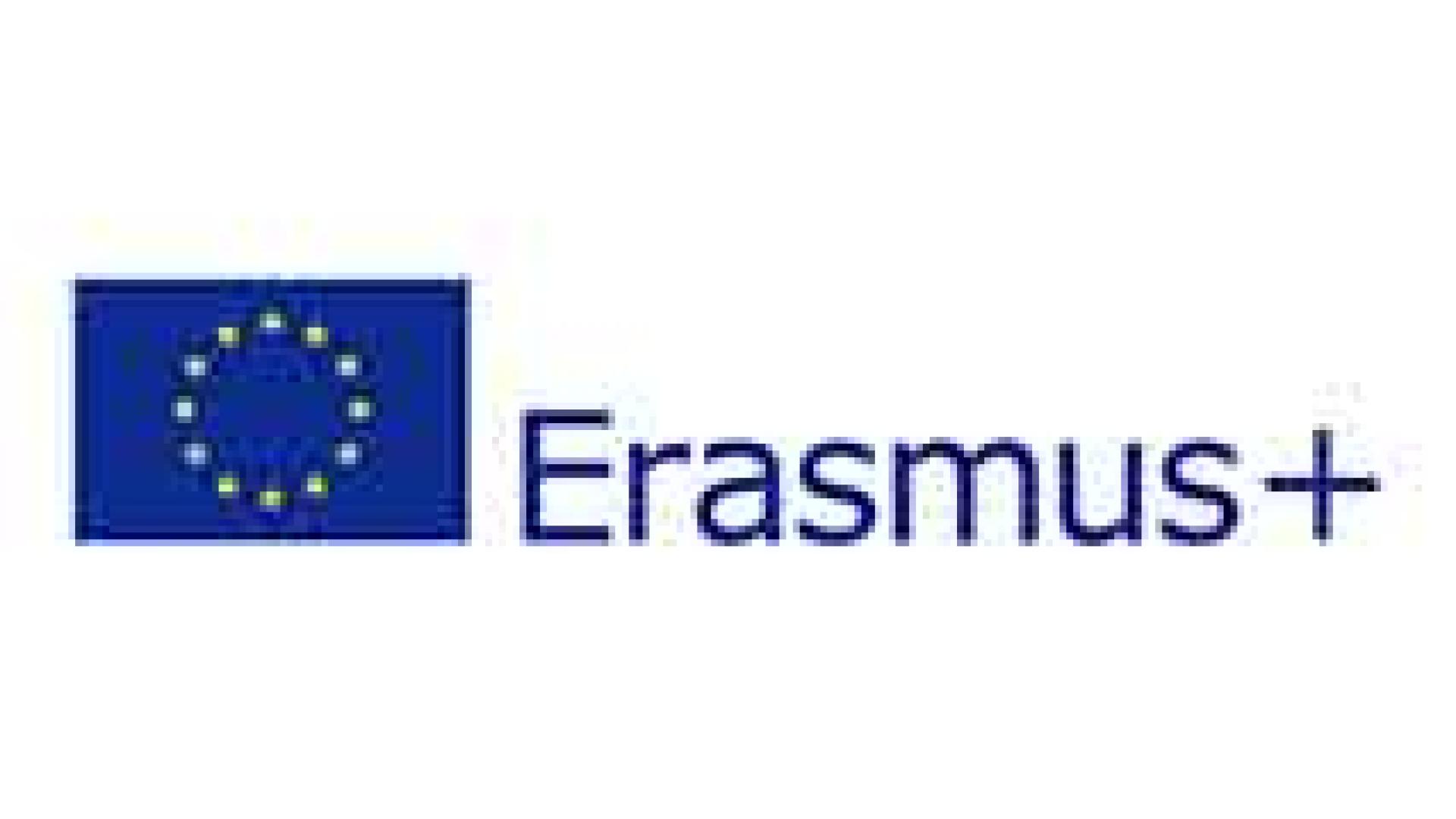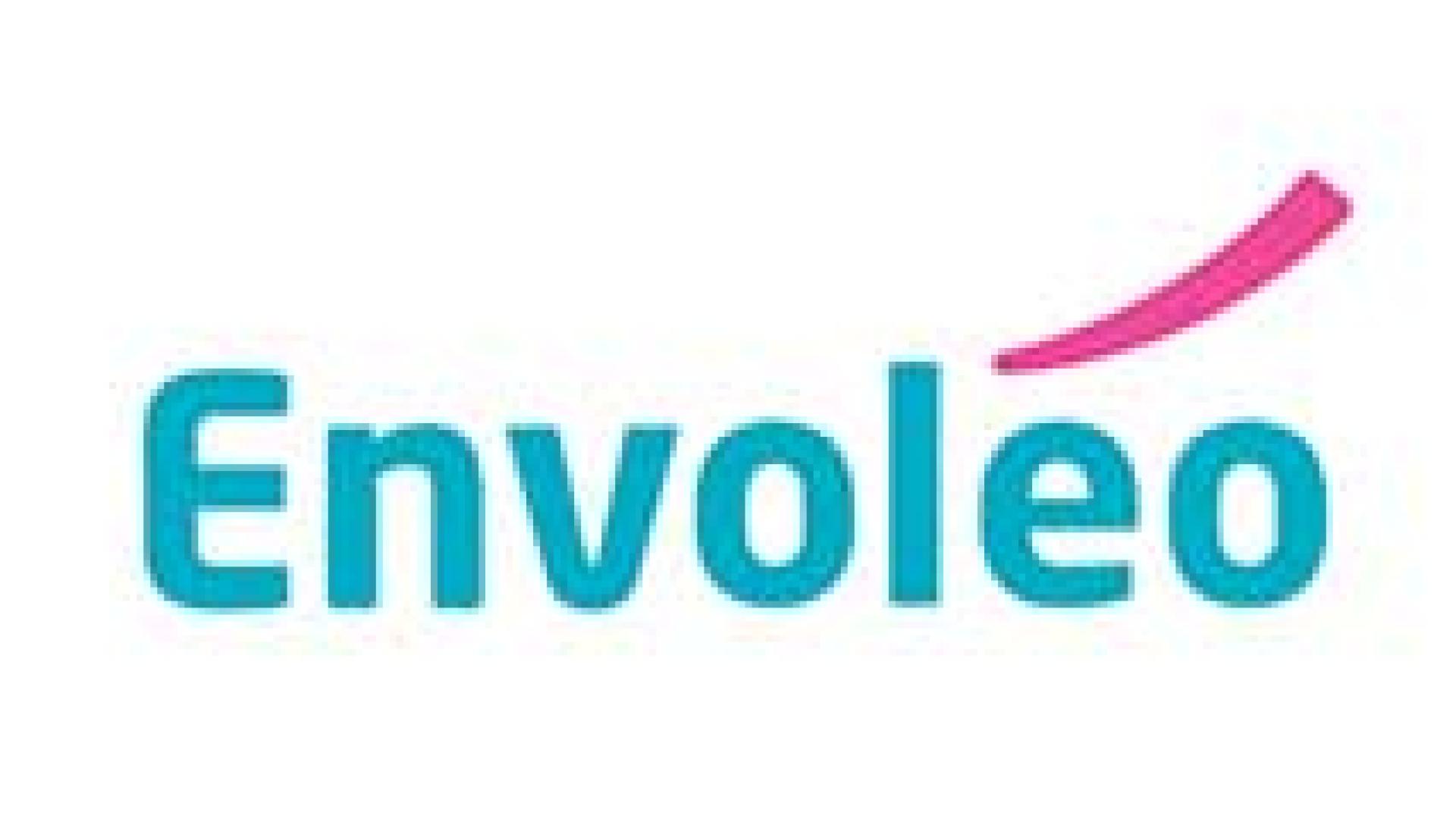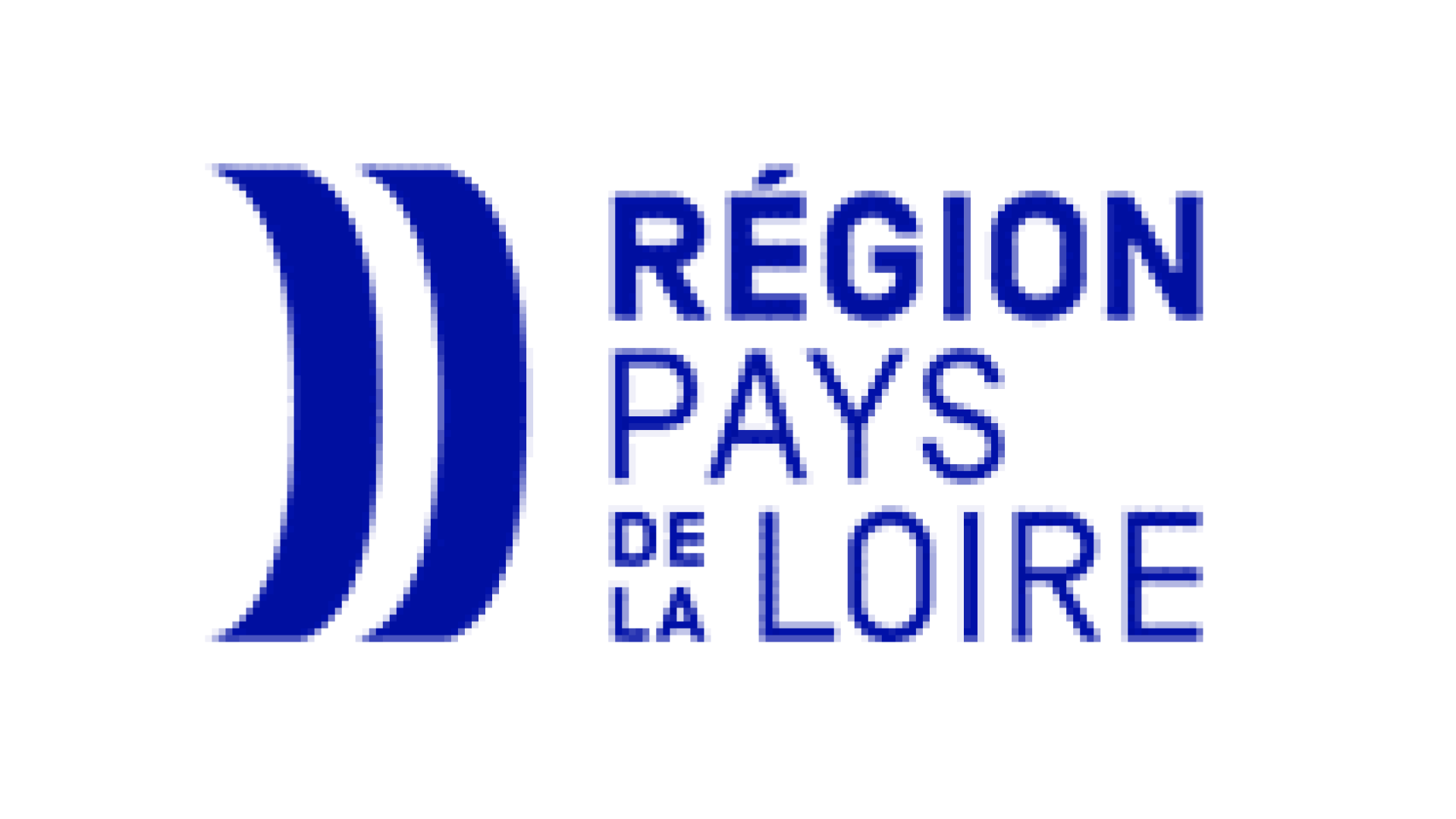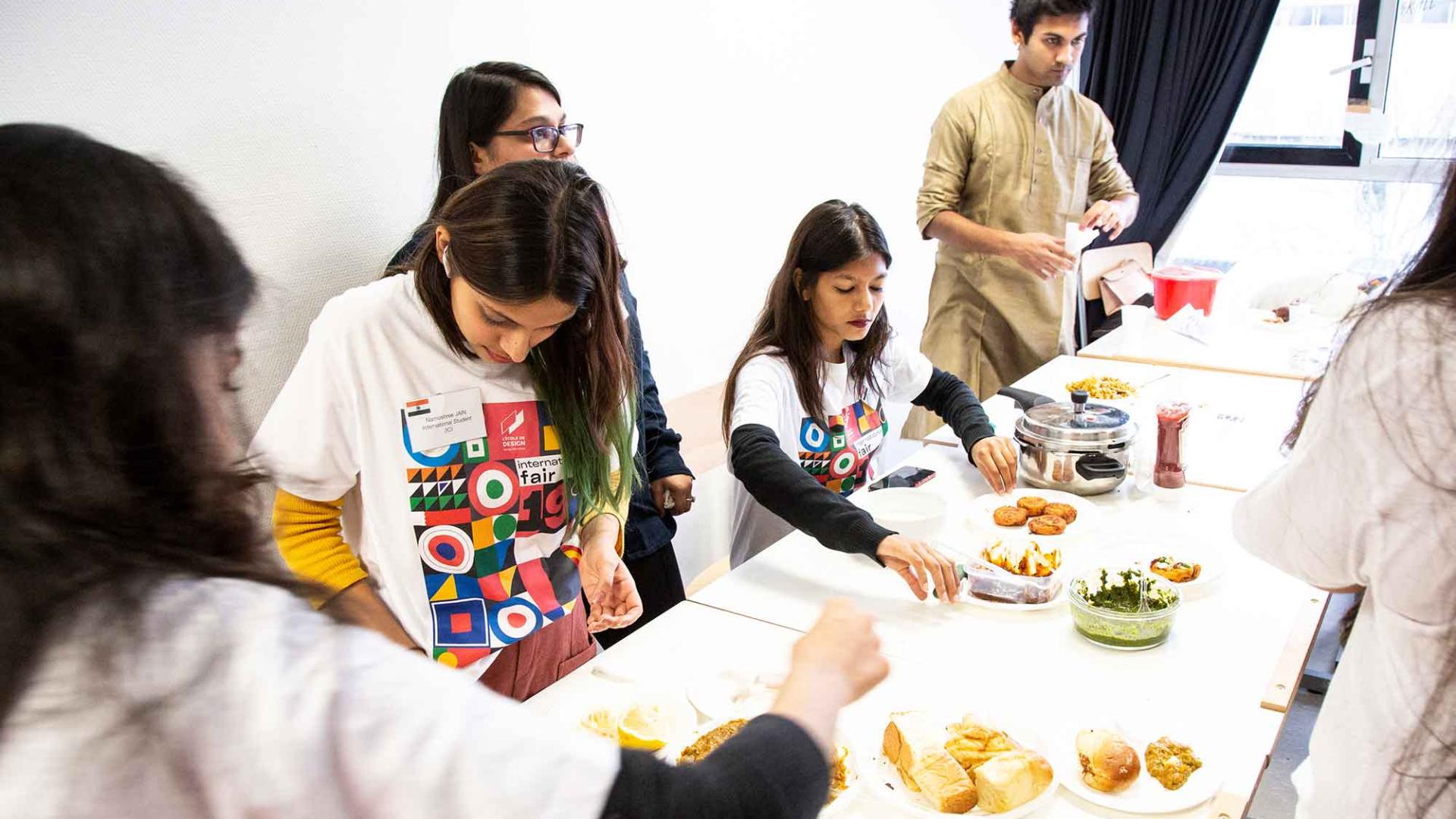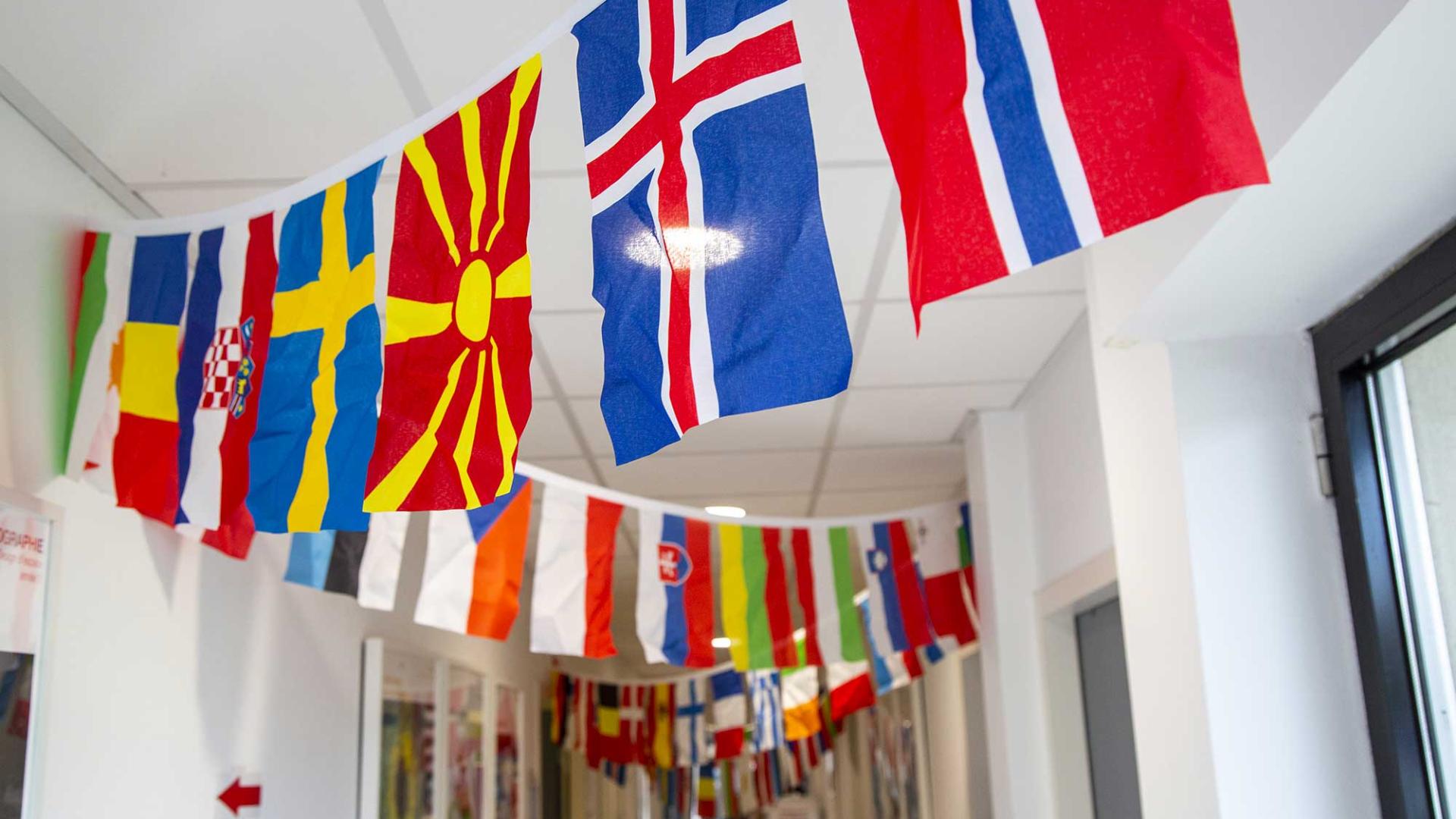
Going on an international exchange
Since 1999 and the deployment of its ambitious strategy of global outreach, international development has been part of the DNA of L'École de design Nantes Atlantique.
What could be more instructive for a future designer than to immerse themselves for several months in a different cultural context? Living abroad is, of course, a way of enriching yourself on a personal level, but it also means adapting your way of being and acting in front of others.
In the field of design, knowing how to rely on your own principles and models in order to imagine and design pragmatic solutions, adapted to new environments and needs, is undoubtedly a skill that should be emphasized when starting a career.
International programs: academic exchanges and international
studios
As part of the 5-year curriculum, each student has the opportunity to spend a semester abroad at the beginning of the first year of the Master's program as part of an academic exchange. The student can choose between:
- a study period in one of the partner schools of L'École de design Nantes Atlantique,
- a design internship in an agency or company.
They can also choose to spend two years in Cotonou in Benin, Shanghai in China, Montreal in Canada, or São Paulo in Brazil, as part of the International Design Strategy master's program at the school's international studios.
Learn about international programs and exchange opportunities
In order to make their choice of school, students can consult the list of partnerships as well as the information sheets and pdf presentations made available by the International office. It is also advisable to consult the Cumulus network website, and the videos that students made during their international stays.
If the student wishes to do an internship abroad, he or she can be put in contact with alumni who are located abroad on the We design platform and talk to students who have already done an internship abroad. They can also create a We design alert and automatically receive all the news about internship offers posted on the site.
Finally, every year in December, a meeting is organized during the International Fair, for 3rd year students, 5th year students who have returned from abroad and international students enrolled at L'École de design Nantes Atlantique. On this occasion, the films made by the students during their stay abroad are shown and international students cook food from their home country.
Internship mobility
Internships in international companies take place under the supervision of L'École de design Nantes Atlantique. However, it is the student's responsibility to find the host company and to submit it to the internship coordinator for approval, respecting the procedures and deadlines indicated.
The writing of the CV, the cover letter and the presentation of the portfolio are supervised by the team dedicated to the professionalization at the school and the English teachers. Students must send their applications to companies themselves.
An internship program, indicating the dates and detailing the scheduled missions, must be signed by the company and validated by the team dedicated to internships, in order to establish a specific internship agreement, co-signed by the company, the intern and L'École de design Nantes Atlantique. The content of this agreement must correspond to the pedagogical objectives set by the supervisory staff.
This semester is validated by an oral presentation before a jury. The student must obtain a mark of at least 10/20 to validate the 30 ECTS. Students are notified of the terms and conditions of the oral internship defense before they leave.
Academic mobility
The number of places reserved for students in the Master's program at L'École de design de Nantes Atlantique in each partner school is limited: between 1 and 4 places depending on the partnership. If several students apply for the same places, the pedagogical management team will make a selection based on the grades, motivations and level of English of the candidates.
Only one application can be sent per student to the partner schools considered. This application includes a CV, a cover letter and a portfolio in English. Some schools also require certificates attesting to the applicant's level of English (TOEIC, IELTS or TOEFL). The student is informed of the documents they need to provide and the application procedure. The application is sent to the partner school by the Head of International Relations, who is in direct contact with an official of the host school. The student will receive the answer from the partner school in June/July.
The application is subject to the approval of the partner school. Established agreements do not guarantee that the student will obtain the desired destination.
The formalities related to enrollment in the partner institution are carried out by L'École de design Nantes Atlantique.
The student is responsible for the different steps to be taken concerning the material aspects of his or her stay: travel to and from the host country, accommodation, administrative documents, social security, visa, etc.)
The 30 ECTS for the semester abroad are formalised when the partner school notifies the student of the validation of the terms of the learning agreement, signed by the student, the director of studies of L'École de design Nantes Atlantique and the host institution. A transcript of grades is given to the student by the partner institution and by L'École de design Nantes Atlantique at the end of the semester. Please note that 5 ECTS are allocated to a presentation and a film of the study period abroad presented by the student on his/her return. This allows students to gain credits not acquired during the mobility period. For students who do not validate sufficient credits during their mobility, L'Ecole de design Nantes Atlantique assigns projects upon their return to allow students the opportunity to recuperate credits.
All the details are explained to the students in the months preceding the mobility, during the preparatory meetings for the stay, led by the director of studies, the head of international relations and the team dedicated to internships.
- Improved learning performance
- Enhanced employability and improved career prospects
- Increased sense of initiative and entrepreneurship
- Increased self-empowerment and self-esteem
- improved foreign language and digital competences
- enhanced intercultural awareness
Mobility grants for internships and studies
The European Union and the Pays de la Loire Region offer scholarships for students who go abroad for their studies, either to study at an institution or for an internship. The number of scholarships available to L'École de design Nantes Atlantique varies each year.
Envoleo
The Envoleo grant from the Pays de la Loire Region is an aid for international mobility from Nantes and its region.
Eligible students receive the following departure package: a fixed grant of €1,000. This grant cannot be combined with the ERASMUS+ grant.
The fixed amount is doubled for students with higher education grants on social criteria for levels 4, 5, 6 and 7. Similarly, the amount is increased by €1,000 for students with disabilities. To learn more about the school's social policy, visit this page.
The Region is the sole decision-maker on the admissibility of the application submitted by the student to L'École de design Nantes Atlantique.
Erasmus+
Within the framework of the Erasmus+ program, of which L'École de design Nantes Atlantique is a signatory, the school pays students a grant to contribute to their living and travel expenses:
- An initial payment of 80% of the amount before the beginning of the mobility period abroad,
- A second payment of 20% of the amount at the latest 45 days after the end of the mobility.
The amount of the allowance varies according to the duration of the stay, the nature of the mobility (studies or internship) and the country of destination:
Group 1 (Austria, Belgium, Denmark, Finland, Germany, Ireland, Iceland, Italy, Liechtenstein, Luxembourg, Netherlands, Norway, Sweden)
Switzerland and the UK are part of the ERASMUS+ programme within the limits of the available budget
- 440€/month for exchange studies
- 590€ month for an internship
Group 2/3 (Bulgaria, Cyprus, Croatia, Czech Republic, Estonia, Greece, Hungary, Latvia, Lithuania, Malta, North Macedonia, Poland, Portugal, Romania, Serbia, Slovakia, Slovenia, Spain, Turkey)
- 390€/month for exchange studies
- 540€/month for an internship
The new Erasmus+ program aims to promote an eco-responsible approach as well as equal opportunities and access, inclusion, diversity and equity through all its actions.
- It is possible to obtain the financial supplement "support for inclusion" of €250 per month, in addition to the Erasmus+ grant (Disability, Residential area, Governmental grant grade 6 or 7, CAF family quotient < 566€) ;
- Coverage of the expenses necessary for mobility for people with disabilities on the basis of real costs. Visit this page.
Travel costs are added to the amount of the scholarship. They depend on a flying distance between Nantes and the mobility destination.
Example for a distance between 500 and 1999 km:
- 309€ extra
- 417€ extra for a return trip with an eco-responsible means of transport with lower gas emissions (such as train, bus and carpooling, etc.)
EU Academy allows Erasmus+ participants to evaluate their foreign language skills before, during and after their internship or study stay. A first test is mandatory on the EU Academy platform before the start of the mobility.
Participants then have the opportunity to take free online language courses, podcasts and interactive modules in different European languages to improve their language skills.
Teaching Mobility
Teachers can carry out teaching missions in one of the school's European partner institutions. Within the framework of the Erasmus+ program, the duration of the mobility can vary between 2 days (8 hours of teaching minimum) and 2 months. The purpose of the mobility is to teach courses that form part of the official curriculum of the host partner institution.
Training Mobility
This mobility is aimed at all staff of a higher education institution (teaching, administrative, technical staff, etc.). It allows them to carry out, for a period of 2 days to 2 months, a training mobility in an institution, a company or a training organization in another European country. In this case, the staff members receive a mobility allowance.
The partner institutions of L'École de design Nantes Atlantique
L'École de design Nantes Atlantique has agreements with more than 120 higher education establishments in 36 countries on 5 continents. These partner schools, universities and institutes:
- take students from L'École de design Nantes Atlantique wishing to make an exchange (first semester of a master's course),
- send their own students to L'École de design Nantes Atlantique, to follow the international programs set up within the school and taught in English (3rd year of the DN MADE, or during the the International Design Strategy Master's program at Studio France).

as an exchange student
Since 1999, L'École de design Nantes Atlantique has been developing an ambitious strategy of international outreach.
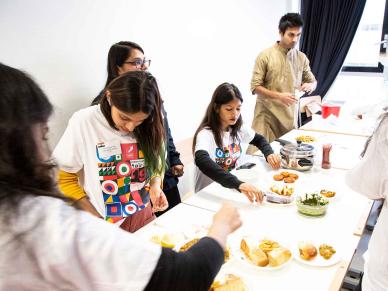
For 25 years, L'École de design Nantes Atlantique has enabled future French designers to train abroad and future international designers to train in Nantes.
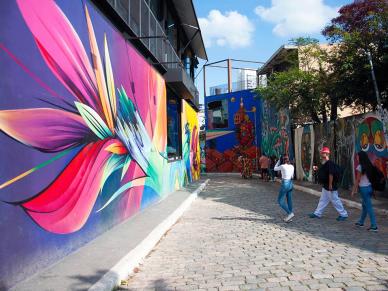
L'École de design Nantes Atlantique has been exporting internationally for several years, with the opening of its international studios.
